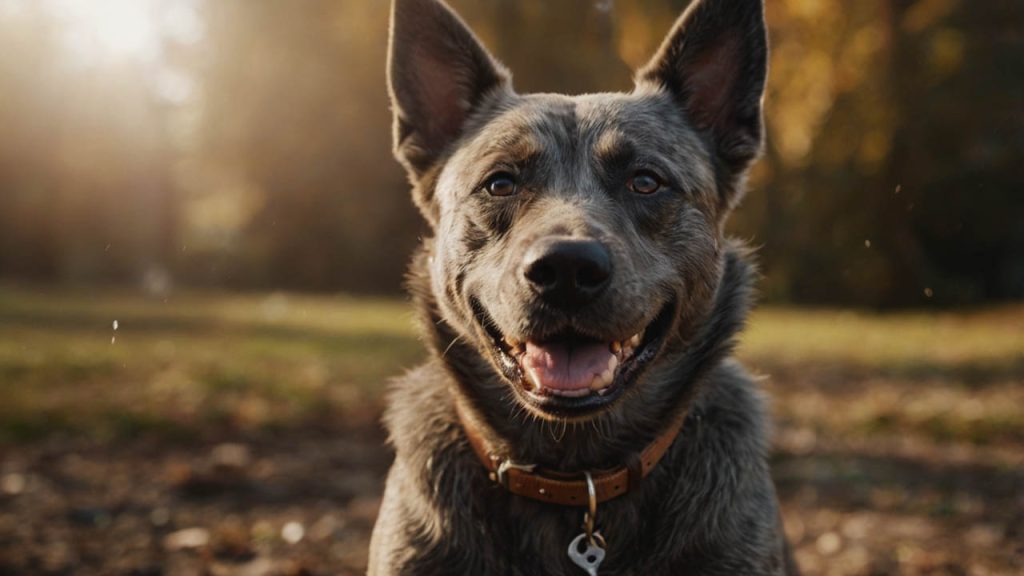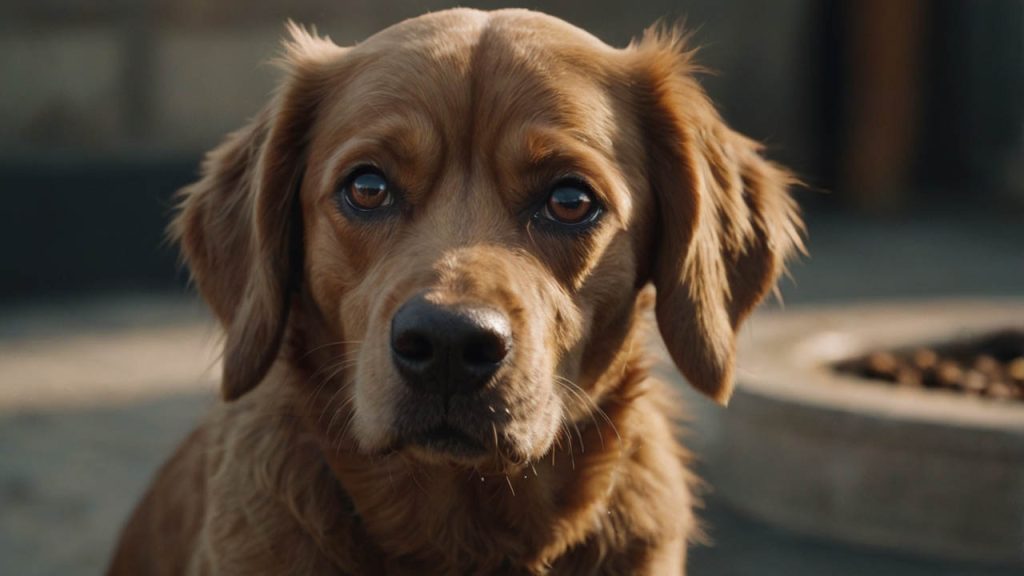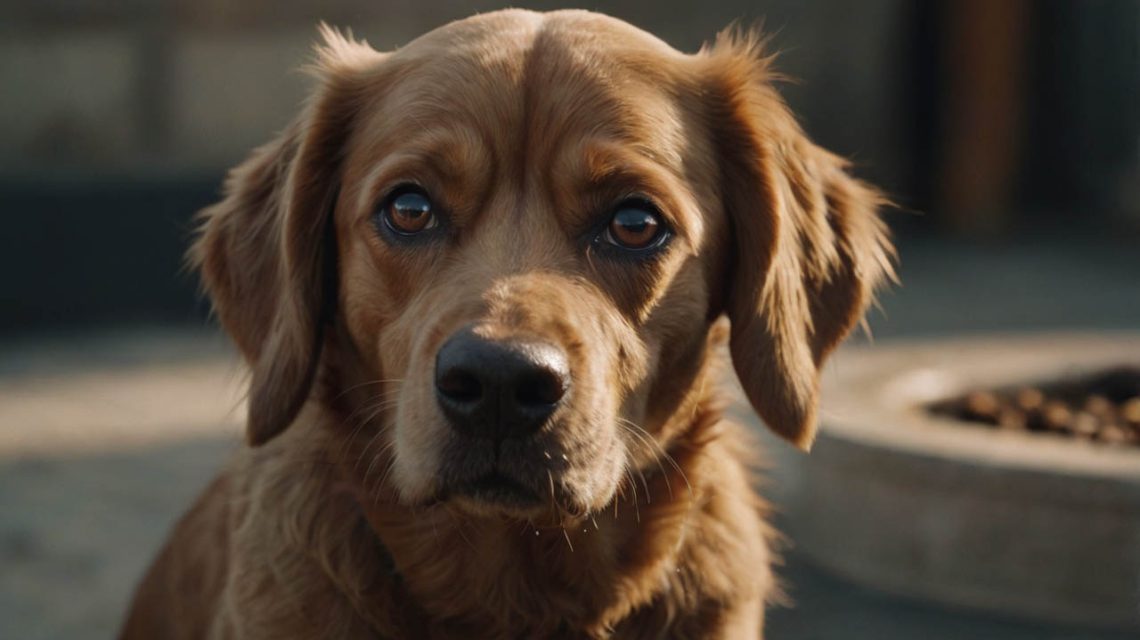Introduction: When Your Dog Has Diarrhea – Essential Information
When your dog has diarrhea, understanding the causes and appropriate responses becomes crucial for their health and recovery. According to the American Kennel Club Canine Health Foundation, approximately 30% of dogs experience diarrhea episodes each year, making this one of the most common health concerns that prompt emergency veterinary visits. Moreover, research from the Journal of Small Animal Practice indicates that dogs receiving proper care within the first 12 hours when a dog has diarrhea recover 65% faster than those with delayed treatment, emphasizing the importance of immediate, informed action.
The significance of recognizing when your dog has diarrhea extends beyond temporary digestive discomfort. Studies published by veterinary gastroenterology specialists reveal that untreated diarrhea can lead to severe dehydration within 8-12 hours, particularly affecting puppies and small breeds who face life-threatening complications from fluid and electrolyte losses. Furthermore, diarrhea often signals underlying conditions ranging from simple dietary indiscretion to serious diseases like parvovirus, pancreatitis, or intestinal cancer that require urgent medical intervention.
Successfully managing situations when a dog has diarrhea demands comprehensive knowledge of various triggers, recognition of emergency symptoms, and systematic implementation of appropriate treatments. While occasional loose stools may resolve with basic home care, persistent or bloody diarrhea necessitates immediate veterinary evaluation. Therefore, this detailed guide provides essential information about causes, immediate response protocols, treatment options, and preventive strategies to help you effectively manage when your dog has diarrhea.
Understanding Why Your Dog Has Diarrhea
Common Causes When a Dog Has Diarrhea
Before implementing treatment strategies when your dog has diarrhea, identifying potential triggers helps determine appropriate interventions. Dietary indiscretion leads the list of causes, occurring when dogs consume spoiled food, garbage, or non-edible items that irritate their digestive systems. Subsequently, abrupt food changes, even between premium brands, frequently trigger digestive upset because beneficial gut bacteria need adjustment time for new ingredients.
Infectious agents create serious concerns when a dog has diarrhea repeatedly. Bacterial infections including Salmonella, E. coli, and Clostridium perfringens cause acute diarrhea requiring specific treatments. Viral infections like parvovirus, coronavirus, and distemper produce severe symptoms demanding immediate intervention. Additionally, parasitic infestations from roundworms, hookworms, giardia, or coccidia affect millions of dogs annually, with puppies showing particular vulnerability.
Stress significantly contributes to cases where a dog has diarrhea during environmental changes. Moving homes, boarding experiences, new family members, or schedule disruptions trigger stress colitis in sensitive dogs. Research from Colorado State University indicates that 43% of dogs develop diarrhea within 72 hours of significant lifestyle changes. Furthermore, chronic conditions including food allergies, inflammatory bowel disease, and pancreatic insufficiency create recurring diarrhea patterns requiring long-term management strategies.

Recognizing Severity When Your Dog Has Diarrhea
Understanding severity levels when a dog has diarrhea determines whether home treatment suffices or emergency care becomes necessary. Mild diarrhea presents as slightly loose stools without other symptoms, typically resolving within 24-48 hours with basic interventions. Moderate cases involve frequent watery stools, mild lethargy, and decreased appetite but maintain normal hydration status.
Severe diarrhea demands immediate veterinary attention when your dog has diarrhea with alarming symptoms. Blood in stool, whether bright red indicating lower intestinal bleeding or black tarry suggesting upper digestive tract hemorrhage, always requires emergency evaluation. Concurrent vomiting rapidly depletes fluids creating dangerous dehydration. Additionally, signs of abdominal pain, fever above 103°F, or collapse indicate life-threatening conditions.
Age and health factors influence urgency when a dog has diarrhea episodes. Puppies under four months face higher mortality risks from dehydration and hypoglycemia during diarrhea. Senior dogs with pre-existing conditions like kidney disease or diabetes require immediate intervention as diarrhea destabilizes their managed conditions. Small breeds under 10 pounds dehydrate faster than larger dogs, necessitating quicker veterinary involvement.
Immediate Actions When Your Dog Has Diarrhea
First Response Protocol for Dog Has Diarrhea
Implementing proper initial steps when your dog has diarrhea significantly impacts recovery outcomes. First, temporarily withhold food for 12-24 hours, allowing the digestive system to rest and reset naturally. However, never restrict water access, as maintaining hydration remains absolutely critical. Provide small, frequent water offerings preventing excessive drinking that might trigger vomiting.
Document detailed observations when your dog has diarrhea to assist veterinary diagnosis. Record stool frequency, consistency (watery, pudding-like, or formed), color variations (yellow, green, red, or black), presence of mucus or blood, and any unusual odors. Additionally, note accompanying symptoms including vomiting episodes, appetite changes, energy levels, and behavioral alterations. This information proves invaluable for determining underlying causes.
Create an optimal recovery environment when a dog has diarrhea by minimizing stressors. Limit physical activity to brief, supervised bathroom breaks preventing exhaustion. Provide easy outdoor access or strategically placed puppy pads for dogs struggling with bowel control. Furthermore, maintain consistent daily routines reducing anxiety that could worsen digestive upset.
Critical Hydration Management
Preventing dehydration represents the paramount concern when your dog has diarrhea persistently. Offer unflavored Pedialyte diluted equally with water, replacing essential electrolytes lost through frequent bowel movements. Alternatively, prepare homemade electrolyte solutions mixing one quart water with one tablespoon sugar and one teaspoon salt. Ice cubes or frozen low-sodium chicken broth encourage reluctant drinkers while controlling consumption pace.
Monitor hydration status every 2-3 hours when a dog has diarrhea to detect deterioration early. Perform the skin tent test by gently pinching skin between shoulder blades—properly hydrated skin immediately snaps back while dehydrated skin remains elevated. Check gum moisture and capillary refill by pressing gums until white, timing color return which should occur within two seconds. Document findings tracking improvement or decline.
Calculate precise fluid requirements ensuring adequate intake when your dog has diarrhea continuously. Dogs normally need one ounce per pound bodyweight daily, increasing to 1.5-2 ounces during diarrhea. Use needleless syringes administering small amounts every 30 minutes if voluntary drinking proves insufficient. Most dogs tolerate 5-10ml given slowly alongside the gums, preventing aspiration risks.
Treatment Options When Dog Has Diarrhea
Dietary Management Strategies
After initial fasting, introducing appropriate nutrition becomes essential when a dog has diarrhea requiring recovery support. Begin offering small portions of bland, easily digestible foods every 3-4 hours rather than regular meal schedules. The traditional combination of boiled white rice mixed with boiled skinless chicken breast in a 2:1 ratio provides gentle nutrition without irritating sensitive intestines.
Proper food preparation maximizes digestibility when your dog has diarrhea during recovery phases. Boil chicken thoroughly removing all fat, skin, and seasonings that could worsen symptoms. Cook rice with extra water until mushy, creating porridge consistency that’s easier to digest. Alternative proteins include boiled lean ground turkey, low-fat cottage cheese, or plain scrambled eggs prepared without oil.
Portion control proves crucial for successful management when a dog has diarrhea repeatedly. Start with one tablespoon for toy breeds, two tablespoons for small dogs, 1/4 cup for medium breeds, and 1/2 cup for large dogs. Monitor tolerance for 2-3 hours before offering additional portions. Gradually increase amounts over 3-5 days as stools firm, avoiding rapid progression triggering relapse.
Beneficial Supplements and Natural Remedies
Incorporating digestive support enhances recovery when your dog has diarrhea persistently. Probiotics containing Lactobacillus acidophilus and Bifidobacterium strains restore beneficial gut bacteria destroyed during diarrhea episodes. Veterinary-formulated products like FortiFlora or Proviable provide appropriate concentrations specifically designed for canine digestive systems. Administer according to package directions or veterinary recommendations.
Natural remedies offer gentle support when a dog has diarrhea without severe symptoms. Plain canned pumpkin (not pie filling) provides soluble fiber helping firm loose stools naturally. Add 1-4 tablespoons based on dog size to bland meals. Slippery elm bark powder creates protective coating on irritated intestinal walls, reducing inflammation and discomfort. Mix 1/2 teaspoon per 10 pounds bodyweight with water, forming gel-like consistency.
Bone broth supplies easily absorbed nutrients maintaining strength when your dog has diarrhea affecting appetite. Simmer bones for 24 hours creating nutrient-rich liquid, removing all fat before serving. Offer 1/4 to 1 cup based on size throughout the day. Additionally, chamomile tea possesses anti-inflammatory properties soothing digestive upset—brew weak tea, cool completely, and provide small amounts twice daily.
Medical Intervention When Your Dog Has Diarrhea
Diagnostic Procedures for Persistent Cases
Professional evaluation becomes necessary when a dog has diarrhea beyond 48 hours despite home treatment. Veterinarians perform comprehensive physical examinations assessing hydration status, abdominal pain, and overall condition. Fecal analysis identifies parasites, bacterial overgrowth, or occult blood requiring specific treatments. Complete blood counts reveal infections, while chemistry panels detect organ dysfunction or electrolyte imbalances.
Advanced diagnostics help determine underlying causes when your dog has diarrhea chronically. Abdominal radiographs detect foreign objects, tumors, or intestinal abnormalities. Ultrasound examinations provide detailed visualization of organs identifying inflammatory bowel disease or pancreatic disorders. Endoscopy allows direct intestinal examination with biopsy collection for definitive diagnosis of chronic conditions.
Specialized testing addresses specific concerns when a dog has diarrhea with unusual presentations. PCR panels identify viral and bacterial pathogens rapidly. Food allergy testing through elimination diets or blood tests determines dietary triggers. Pancreatic function tests diagnose exocrine pancreatic insufficiency requiring enzyme supplementation. These targeted approaches ensure accurate diagnosis guiding appropriate treatment selection.
Prescription Medications and Therapies
Veterinarians prescribe specific medications based on identified causes when your dog has diarrhea requiring medical management. Metronidazole treats bacterial overgrowth and inflammatory conditions while providing anti-diarrheal effects. Tylosin targets specific bacterial infections causing chronic small bowel diarrhea. Anti-parasitic medications eliminate identified organisms based on fecal examination results.
Fluid therapy corrects dehydration when a dog has diarrhea severely affecting hydration status. Subcutaneous fluids administered at home maintain hydration in stable patients. However, intravenous fluid therapy becomes essential for severely dehydrated dogs requiring rapid rehydration with continuous monitoring. Hospitalization provides intensive support including anti-nausea medications, pain management, and nutritional support through feeding tubes if necessary.
Prescription diets designed for gastrointestinal conditions support recovery when your dog has diarrhea from food sensitivities. Hydrolyzed protein diets eliminate allergic triggers while providing complete nutrition. Novel protein formulas using uncommon ingredients like venison or duck identify food allergies. High-fiber diets regulate bowel movements in dogs with chronic colitis. These therapeutic diets require veterinary authorization ensuring appropriate selection.

Home Care Management When Dog Has Diarrhea
Environmental Modifications for Recovery
Creating supportive environments accelerates healing when a dog has diarrhea at home. Designate quiet recovery spaces away from household activity and noise. Provide comfortable bedding with waterproof covers protecting against accidents. Maintain room temperature between 68-72°F preventing additional stress from temperature extremes. Use calming pheromone diffusers reducing anxiety that might worsen digestive symptoms.
Hygiene protocols prevent disease spread when your dog has diarrhea in multi-pet households. Clean accidents immediately using enzymatic cleaners eliminating odors and bacteria completely. Disinfect food bowls, water dishes, and toys daily with pet-safe sanitizers. Wash bedding in hot water with unscented detergent avoiding fabric softeners that might irritate sensitive dogs. Isolate affected dogs from healthy pets when infectious causes are suspected.
Exercise modifications support recovery without causing exhaustion when a dog has diarrhea repeatedly. Replace regular walks with frequent brief bathroom breaks focusing solely on elimination. Avoid vigorous play or running that could worsen dehydration. Provide mental stimulation through gentle training or puzzle feeders maintaining engagement without physical stress. Gradually return to normal activity levels as symptoms resolve completely.
Monitoring Progress and Recovery Signs
Tracking improvement helps determine treatment effectiveness when your dog has diarrhea during recovery. Document stool consistency changes using standardized fecal scoring charts rating from 1 (very hard) to 7 (liquid). Note frequency decreases indicating digestive normalization. Record energy levels, appetite return, and behavioral improvements suggesting overall recovery. Share detailed progress reports with veterinarians during follow-up consultations.
Recognize positive indicators showing recovery when a dog has diarrhea is resolving successfully. Formed stools returning gradually over 2-3 days indicate digestive healing. Increased energy and playfulness suggest improving overall health. Normal appetite without vomiting demonstrates digestive tolerance. Additionally, regular bowel movement patterns replacing urgent frequent elimination shows system stabilization.
Identify warning signs requiring renewed intervention when your dog has diarrhea appears to improve then worsens. Symptom recurrence after dietary transitions often indicates premature progression. New symptoms like vomiting or lethargy suggest complications developing. Blood reappearing in previously normal stools demands immediate veterinary consultation. These setbacks require protocol adjustments preventing serious deterioration.
Prevention Strategies: Avoiding Future Episodes When Dog Has Diarrhea
Dietary Management for Digestive Health
Preventing recurrence after your dog has diarrhea requires consistent dietary practices supporting digestive stability. Transition between foods gradually over 10-14 days mixing increasing new food amounts with decreasing current food. This extended transition allows digestive bacteria adaptation preventing upset from sudden changes. Document successful foods creating reference lists for future selections.
Maintain feeding consistency reducing digestive stress that triggers episodes where a dog has diarrhea frequently. Establish regular meal times allowing digestive systems to anticipate food arrival. Measure portions precisely preventing overfeeding that overwhelms digestive capacity. Limit treats to 10% of daily calories, choosing single-ingredient options without artificial additives. Avoid table scraps completely, as human food often triggers digestive upset.
Identify individual sensitivities preventing future instances when your dog has diarrhea from dietary triggers. Keep detailed food diaries documenting ingredients, treats, and digestive responses. Common triggers include beef, chicken, dairy, wheat, and corn. Once identified, eliminate problematic ingredients permanently. Consider limited ingredient diets reducing exposure to potential allergens while maintaining nutritional completeness.
Preventive Health Measures
Regular veterinary care reduces risks of situations where a dog has diarrhea from preventable causes. Annual fecal examinations detect parasites before clinical signs develop. Maintain current deworming protocols based on geographic risks and lifestyle factors. Update vaccinations preventing viral causes including parvovirus and coronavirus. Discuss preventive medications for dogs with chronic digestive sensitivities.
Stress management prevents anxiety-related cases when a dog has diarrhea during life changes. Identify individual stress triggers through careful observation. Implement gradual desensitization training addressing specific fears. Consider adaptogenic supplements or anxiety medications for chronically stressed dogs. Create predictable routines providing security during transitional periods.
Environmental safety prevents dietary indiscretion causing situations where your dog has diarrhea from eating inappropriate items. Secure garbage cans with locking lids preventing scavenging behaviors. Remove toxic plants from homes and yards. Train reliable “leave it” commands preventing consumption during walks. Supervise closely in unfamiliar environments containing unknown hazards.
Special Considerations for Different Life Stages
Puppy-Specific Concerns When Dog Has Diarrhea
Puppies require modified approaches when a young dog has diarrhea due to increased vulnerability. Never withhold food longer than 8-12 hours as hypoglycemia develops rapidly. Offer small frequent meals every 2-3 hours maintaining blood glucose stability. Monitor hydration status hourly since puppies dehydrate faster than adults. Provide warming support as hypothermia accompanies severe diarrhea in young dogs.
Vaccination status critically influences management when a puppy dog has diarrhea with concerning symptoms. Unvaccinated puppies require immediate veterinary evaluation ruling out parvovirus, which causes severe bloody diarrhea with 91% mortality if untreated. Early aggressive treatment improves survival to 80-95%. Partially vaccinated puppies also need professional assessment ensuring protection levels.
Parasites disproportionately affect puppies when a young dog has diarrhea persistently. Implement deworming protocols starting at two weeks, repeating every two weeks until 12 weeks old. Test for coccidia and giardia requiring specific medications. Monitor growth rates ensuring diarrhea doesn’t impair development. Supplement with puppy-specific probiotics supporting developing digestive systems.
Senior Dog Management Approaches
Older dogs need specialized care when a senior dog has diarrhea due to age-related complications. Pre-existing conditions like kidney disease, diabetes, or heart failure destabilize quickly during diarrhea episodes. These dogs require veterinary evaluation within 12-24 hours preventing crisis situations. Adjust medications accounting for altered absorption during digestive upset.
Cognitive changes affect management when an elderly dog has diarrhea with decreased awareness. Confused dogs may have indoor accidents despite lifelong housetraining. Provide frequent bathroom opportunities preventing accidents. Use belly bands or diapers protecting home environments without causing stress. Never punish accidents resulting from medical conditions or cognitive decline.
Cancer screening becomes important when a senior dog has diarrhea chronically without obvious causes. Intestinal lymphoma, adenocarcinoma, and other tumors present initially as persistent diarrhea. Request comprehensive evaluations including imaging and biopsies for unexplained chronic diarrhea. Early detection improves treatment options and quality of life decisions.
Conclusion: Comprehensive Management When Your Dog Has Diarrhea
Successfully managing situations when your dog has diarrhea requires immediate recognition, appropriate intervention, and consistent monitoring ensuring rapid recovery and preventing complications. Throughout this comprehensive guide, you’ve learned to identify various causes from simple dietary indiscretion to serious medical conditions, recognize emergency warning signs demanding veterinary care, and implement effective home treatment protocols including dietary management and hydration strategies. The key to successful resolution when a dog has diarrhea lies in understanding severity levels, maintaining proper hydration throughout recovery, implementing gradual dietary transitions, and knowing when professional intervention becomes necessary.
Remember that every dog responds uniquely to treatment when your dog has diarrhea based on age, size, overall health, and underlying causes. While many cases resolve within 24-48 hours using bland diets and supportive care, persistent or severe diarrhea always requires veterinary evaluation ruling out serious conditions. Your careful observation, detailed symptom documentation, and consistent application of appropriate interventions determine recovery speed and prevent dangerous complications.
Take immediate action when your dog has diarrhea by implementing the comprehensive protocol outlined in this guide: assess severity, withhold food temporarily while maintaining hydration, document all symptoms, and prepare bland diet ingredients for controlled refeeding. Create a calm recovery environment, monitor hydration status frequently, and maintain detailed progress records. Most importantly, trust your instincts—seek veterinary care immediately if symptoms worsen, blood appears, or your dog shows signs of dehydration or pain.
Contact your veterinarian without hesitation when your dog has diarrhea persistently beyond 48 hours, contains blood, accompanies vomiting or lethargy, or affects vulnerable dogs including puppies, seniors, or those with chronic conditions. With proper knowledge, consistent management strategies, and timely professional intervention when needed, you can confidently handle this common condition ensuring your beloved companion returns quickly to optimal health, preventing future episodes through preventive care and dietary management.


